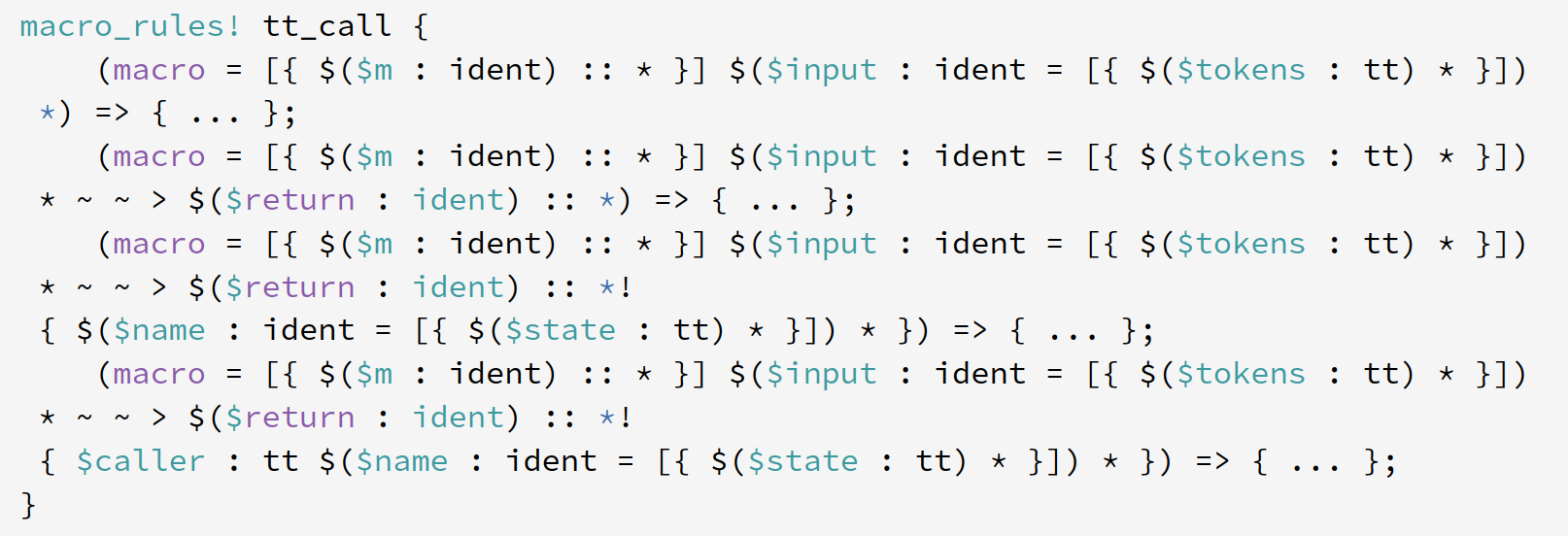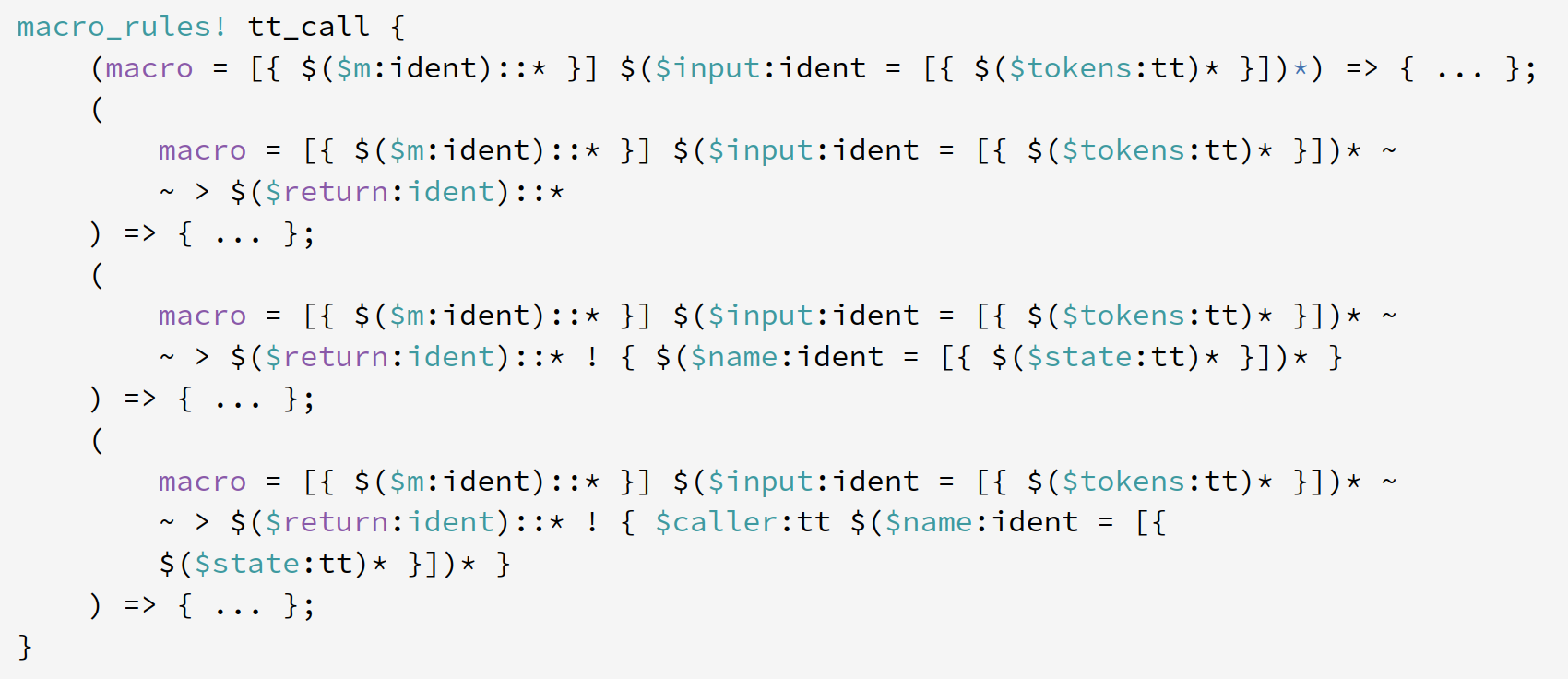Store def_id_to_hir_id as variant in hir_owner.
If hir_owner is Owner(_), the LocalDefId is pointing to an owner, so the ItemLocalId is 0.
If the HIR node does not exist, we store Phantom.
Otherwise, we store the HirId associated to the LocalDefId.
Related to #89278
r? `@oli-obk`
Previously, the radio button choices for themes would wrap awkwardly on
narrow screens. With this change, the group of choices will prefer
bumping down to the next line together, leaving the setting name on its
own line.
Also fix some minor spacing issues:
- Align the setting name vertically with the radio button choices.
- Use margin instead of padding for most spacing choices.
- Use no margin/padding on the right-hand side.
kmc-solid: Inherit the calling task's base priority in `Thread::new`
This PR fixes the initial priority calculation of spawned threads on the [`*-kmc-solid_*`](https://doc.rust-lang.org/nightly/rustc/platform-support/kmc-solid.html) Tier 3 targets.
Fixes a spawned task (an RTOS object on top of which threads are implemented for this target; unrelated to async tasks) getting an unexpectedly higher priority if it's spawned by a task whose priority is temporarily boosted by a priority-protection mutex.
Remove deprecated and unstable slice_partition_at_index functions
They have been deprecated since commit 01ac5a97c9
which was part of the 1.49.0 release, so from the point of nightly,
11 releases ago.
unix: Use metadata for `DirEntry::file_type` fallback
When `DirEntry::file_type` fails to match a known `d_type`, we should
fall back to `DirEntry::metadata` instead of a bare `lstat`, because
this is faster and more reliable on targets with `fstatat`.
review the total_cmp documentation
The documentation has been restructured to split out a brief summary
paragraph out from the following elaborating paragraphs.
I also attempted my hand at wording improvements and adding articles
where I felt them missing, but being non-native english speaker these
may need more thorough review.
cc https://github.com/rust-lang/rust/issues/72599
Fix some CSS warnings and errors from VS Code
There's no such CSS rule as `box-shadow-color`, so I instead copied the
whole `box-shadow` property to each rule to make it actually apply.
r? `@jsha`
Clarify documentation on char::MAX
As mentioned in https://github.com/rust-lang/rust/issues/91836#issuecomment-994106874, the documentation on `char::MAX` is not quite correct – USVs are not "only ones within a certain range", they are code points _outside_ a certain range. I have corrected this and given the actual numbers as there is no reason to hide them.
Make `char::DecodeUtf16::size_hist` more precise
New implementation takes into account contents of `self.buf` and rounds lower bound up instead of down.
Fixes#88762
Revival of #88763
Switch pretty printer to block-based indentation
This PR backports 401d60c042 from the `prettyplease` crate into `rustc_ast_pretty`.
A before and after:
```diff
- let res =
- ((::alloc::fmt::format as
- for<'r> fn(Arguments<'r>) -> String {format})(((::core::fmt::Arguments::new_v1
- as
- fn(&[&'static str], &[ArgumentV1]) -> Arguments {Arguments::new_v1})((&([("test"
- as
- &str)]
- as
- [&str; 1])
- as
- &[&str; 1]),
- (&([]
- as
- [ArgumentV1; 0])
- as
- &[ArgumentV1; 0]))
- as
- Arguments))
- as String);
+ let res =
+ ((::alloc::fmt::format as
+ for<'r> fn(Arguments<'r>) -> String {format})(((::core::fmt::Arguments::new_v1
+ as
+ fn(&[&'static str], &[ArgumentV1]) -> Arguments {Arguments::new_v1})((&([("test"
+ as &str)] as [&str; 1]) as
+ &[&str; 1]),
+ (&([] as [ArgumentV1; 0]) as &[ArgumentV1; 0])) as
+ Arguments)) as String);
```
Previously the pretty printer would compute indentation always relative to whatever column a block begins at, like this:
```rust
fn demo(arg1: usize,
arg2: usize);
```
This is never the thing to do in the dominant contemporary Rust style. Rustfmt's default and the style used by the vast majority of Rust codebases is block indentation:
```rust
fn demo(
arg1: usize,
arg2: usize,
);
```
where every indentation level is a multiple of 4 spaces and each level is indented relative to the indentation of the previous line, not the position that the block starts in.
By itself this PR doesn't get perfect formatting in all cases, but it is the smallest possible step in clearly the right direction. More backports from `prettyplease` to tune the ibox/cbox indent levels around various AST node types are upcoming.
The `print_expr` method already places an `ibox(INDENT_UNIT)` around
every expr that gets printed. Some exprs were then using `self.head`
inside of that, which does its own `cbox(INDENT_UNIT)`, resulting in two
levels of indentation:
while true {
stuff;
}
This commit fixes those cases to produce the expected single level of
indentation within every expression containing a block.
while true {
stuff;
}
Previously the pretty printer would compute indentation always relative
to whatever column a block begins at, like this:
fn demo(arg1: usize,
arg2: usize);
This is never the thing to do in the dominant contemporary Rust style.
Rustfmt's default and the style used by the vast majority of Rust
codebases is block indentation:
fn demo(
arg1: usize,
arg2: usize,
);
where every indentation level is a multiple of 4 spaces and each level
is indented relative to the indentation of the previous line, not the
position that the block starts in.
Fixes a spawned task getting an unexpectedly higher priority if it's
spawned by a task whose priority is temporarily boosted by a priority-
protection mutex.
Create `core::fmt::ArgumentV1` with generics instead of fn pointer
Split from (and prerequisite of) #90488, as this seems to have perf implication.
`@rustbot` label: +T-libs
This is particularly intended for invoking compiletest; the command line there
is long (3,350 characters on my system) and takes up a lot of screen real estate
for little benefit to the majority of those running bootstrap. This moves
printing it to verbose mode (-v must be passed) which means that it's still
possible to access when needed for debugging.
The main downside is that CI logs will by-default become less usable for
debugging (particularly) spurious failures, but it is pretty rare for us to
really need the information there -- it's usually fairly obvious what is being
run with a little investigation.
The documentation has been restructured to split out a brief summary
paragraph out from the following elaborating paragraphs.
I also attempted my hand at wording improvements and adding articles
where I felt them missing, but being non-native english speaker these
may need more thorough review.
Currently fails with:
error: future cannot be sent between threads safely
--> $DIR/src/test/ui/fmt/format-with-yield-point.rs:21:17
|
LL | assert_send(with_await());
| ^^^^^^^^^^^^ future returned by `with_await` is not `Send`
|
= help: the trait `Sync` is not implemented for `core::fmt::Opaque`
note: future is not `Send` as this value is used across an await
--> $DIR/src/test/ui/fmt/format-with-yield-point.rs:11:37
|
LL | println!("{} {:?}", "", async {}.await);
| --------------------------------^^^^^^-
| | |
| | await occurs here, with `$crate::format_args_nl!($($arg)*)` maybe used later
| has type `ArgumentV1<'_>` which is not `Send`
| `$crate::format_args_nl!($($arg)*)` is later dropped here
note: required by a bound in `assert_send`
--> $DIR/src/test/ui/fmt/format-with-yield-point.rs:18:24
|
LL | fn assert_send(_: impl Send) {}
| ^^^^ required by this bound in `assert_send`
error: future cannot be sent between threads safely
--> $DIR/src/test/ui/fmt/format-with-yield-point.rs:22:17
|
LL | assert_send(with_macro_call());
| ^^^^^^^^^^^^^^^^^ future returned by `with_macro_call` is not `Send`
|
= help: the trait `Sync` is not implemented for `core::fmt::Opaque`
note: future is not `Send` as this value is used across an await
--> $DIR/src/test/ui/fmt/format-with-yield-point.rs:6:17
|
LL | async {}.await
| ^^^^^^ await occurs here, with `$crate::format_args_nl!($($arg)*)` maybe used later
...
LL | println!("{} {:?}", "", m!());
| -----------------------------
| | |
| | in this macro invocation
| has type `ArgumentV1<'_>` which is not `Send`
| `$crate::format_args_nl!($($arg)*)` is later dropped here
note: required by a bound in `assert_send`
--> $DIR/src/test/ui/fmt/format-with-yield-point.rs:18:24
|
LL | fn assert_send(_: impl Send) {}
| ^^^^ required by this bound in `assert_send`
= note: this error originates in the macro `m` (in Nightly builds, run with -Z macro-backtrace for more info)
error: aborting due to 2 previous errors
Rollup of 5 pull requests
Successful merges:
- #92887 (Bootstrap compiler update)
- #92908 (Render more readable macro matcher tokens in rustdoc)
- #93183 (rustdoc: mobile nav fixes)
- #93192 (Add VS 2022 into error message)
- #93475 (Add test to ensure that theme is applied correctly when going back in history)
Failed merges:
r? `@ghost`
`@rustbot` modify labels: rollup
rustdoc: mobile nav fixes
- Make sure the mobile-topbar doesn't overflow its height if the user sets a bigger font.
- Make sure the sidebar can be scrolled all the way to the bottom by shortening it to accommodate the mobile-topbar.
- Make the item name in the mobile-topbar clickable to go to the top of the page.
- Remove excess padding sidebar in mobile mode.
Demo https://rustdoc.crud.net/jsha/mobile-nav-fixes/std/string/struct.String.html
r? `@GuillaumeGomez`
Render more readable macro matcher tokens in rustdoc
Follow-up to #92334.
This PR lifts some of the token rendering logic from https://github.com/dtolnay/prettyplease into rustdoc so that even the matchers for which a source code snippet is not available (because they are macro-generated, or any other reason) follow some baseline good assumptions about where the tokens in the macro matcher are appropriate to space.
The below screenshots show an example of the difference using one of the gnarliest macros I could find. Some things to notice:
- In the **before**, notice how a couple places break in between `$(....)`↵`*`, which is just about the worst possible place that it could break.
- In the **before**, the lines that wrapped are weirdly indented by 1 space of indentation relative to column 0. In the **after**, we use the typical way of block indenting in Rust syntax which is put the open/close delimiters on their own line and indent their contents by 4 spaces relative to the previous line (so 8 spaces relative to column 0, because the matcher itself is indented by 4 relative to the `macro_rules` header).
- In the **after**, macro_rules metavariables like `$tokens:tt` are kept together, which is how just about everybody writing Rust today writes them.
## Before

## After

r? `@camelid`